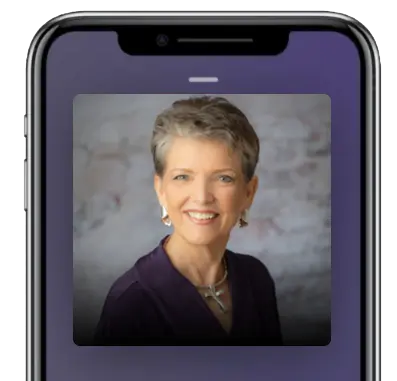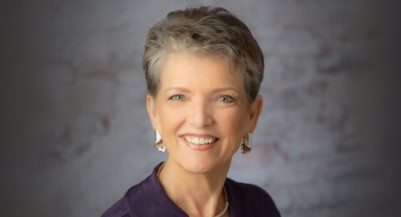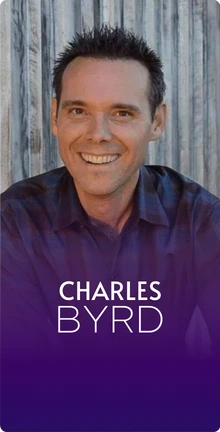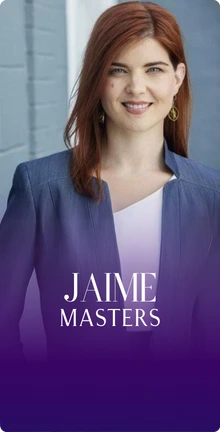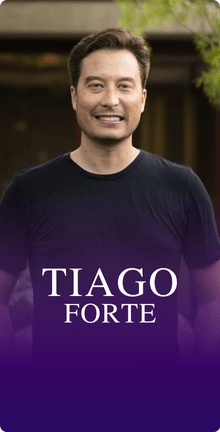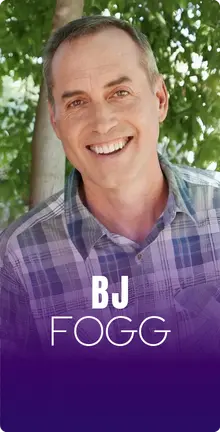In this Episode
- [02:12]Stephan welcomes Barbara Hemphill, the founder of the Productive Environment Institute and author of Taming the Paper Tiger. Barbara discusses her two boot camps, targeting individuals aged 40 and above with accumulated materials.
- [11:47]Barbara expounds her core principle that “clutter is postponed decisions,” using an example of placing dollar bills in files to illustrate unused files. She mentions her background and the influence of her organized family life on her professional systems today.
- [16:49]COVID-19’s impact on the shift to virtual organizing services and how companies have had to focus on organizing to improve productivity.
- [27:00]The transition from a traditional “filing system” to a “finding system” involving consistent indexing.
- [29:45]Stephan shares struggles with digital clutter and how it occupies mental space, while Barbara discusses the shame associated with disorganization and how smart and creative people also struggle with clutter.
- [33:23]Methods to address emotional attachment to items, including planned disposals and keeping meaningful items.
- [57:00]Visit Barbara’s website and avail of her coaching services.
Barbara, it’s so great to have you on the show.
Thank you, Stephan. I’m so happy. When I saw Get Yourself Optimized, it just made my heart sing because “optimize” is one of my favorite words.
Why is that?
Well, we have a nine-step process in Productive Environment Institute that we take people through over a long period of time, like a year, and it’s going from overwhelmed to optimized.
Well, I love being optimized. That’s awesome. That takes an entire year to go through that process, huh?
That’s changing everything. It’s time, space, information, and especially developing habits because we put so much of it in a system first. We offer boot camps. The boot camps are four and five weeks long. In the end, we have one called Office Transformation Bootcamp, which deals with the paper and the physical stuff in your office. Then, we have a Digital Transformation Bootcamp, which deals with email and digital documents. Those are much, much shorter. The key is that at the end of that time, you have put in place a system to stop the problem.
Organizing is an art form. If your vision is big enough, you have to have a WHY.
We’re all about not dealing with the backlog. We use the acronym system, saving you space, time, energy, and money. Every time you have to do something repeatedly, whether it’s exercise or file your taxes, you need a system. We help the client put in a system. It’s not our system. We actually get David Allen and Marie Kondo because both of them have systems, and they absolutely work.
But some people, we had one prospect say, “I tried Marie Kondo and at the end of two months…” I said, “If this is what has to happen, there’s no hope for me.” When people say to me, “What should I do?” We always say, “That’s the wrong question. The question is, “What will you do?”’ Because organizing is an art form. If your vision is big enough, you have to have a “why.” One of the questions we ask is, “On a scale of 1 to 10, how important is it to change this?” If it isn’t 9 or 10, that’s probably not going to be high enough to do it. But if it’s a 9 or 10, then we can always get there. Our certified productive environment specialists all have different ways of working.
Sometimes, clients work with more than one, or they work with one to do one part of what they’re doing and another one to do another part. It’s lots of fun. I’m 77 years old. I’ve been doing this for 46 years. People keep saying, “When are you going to retire?” I said retirement is not in my brain. My mother was 82 and working full time because she wanted to. I’m the same. God didn’t create any two people or any two organizations in the same way. Every day is new and exciting.
That’s awesome. Well, you’re an inspiration. I want to touch on a few things that you said and go a little bit deeper on them. You said the wrong question involves ‘should,’ and really, it’s about, “What will I do?”That reminded me of something I learned from a program methodology called Nonviolent Communication.
Oh, I love that program. That is fantastic.
Well, Marshall always said that “should” is the most violent word in the English language and not to “should” all over yourself.
So true.
That’s one thing that I wanted to bring up because I totally resonated with what you were saying. You mentioned David Allen, and I was going to bring him up. I took his Getting Things Done workshop and read his book. He spoke about something that just was so powerful for me. He called it the Demilitarized Zone, or DMZ. I don’t think there’s much information about this online. I actually just searched for it. I don’t know. It just popped into my head.
The only thing I could find was my interview with him, during which I asked him to reiterate it. I think he mentioned one blog post or something. The DMZ is where you drag all of that email or all of your to-dos or your inbox, your digital backlog, and then you start from fresh, filing things, trying to get caught up, which, as you alluded to, is just a losing proposition. You start with a DMZ folder to clear everything in and out of the inbox, and then you’re starting fresh.
Absolutely. We call it bankruptcy. The way we use that is the same. But we call it email bankruptcy or digital bankruptcy. One of the principles that I came up with almost 40 years ago, which was one of the very early things, was that “today’s mail is tomorrow’s pile.” Research shows that 80% of what we keep, we never use. Actually, Perry Marshall, one of my coaches, says we’ve talked for years about the 80/20 principles, but in his experience, he said now it’s almost like 95/5. But the amount that makes a difference is getting smaller as we get more information.
That’s been my experience as well. When we do it, we will have two boot camps. One is called Office Transformation Bootcamp, which helps people clear their paper and their physical stuff in their office, and then digital bootcamp. In both cases, we start with, “Okay, we’re going to ignore everything you did in the past.” At the end of this program, we guarantee three things. One is that you will know what to do with every new piece of information that comes in, so we’ve stopped the problem. Then two, everything that you have filed in the time we’ve been actively working together, you or anyone else you want to can find it in a matter of seconds. Then, three, you will leave the program with a game plan for how to fix the rest.
Because if this has been piling up, and I have to say, Stephan, that most of our clients are 40 plus, they’re people who have been in business a long time. They’re very intelligent, they’re very interested in things. They’ve accumulated notebooks, training materials, notes, course materials, and stuff like that. There’s a lot. Obviously, you’re not going to fix that quickly, but because research shows that most of it you’re never going to use anyway, you stop the problem. Then, as you need to have something from the old, you bring it into the new, and then, over time, you’ll be able to figure out whether you need it. One of my favorite stories—I was working with a large association. I was in Washington, D.C.
Action means I’m actively working on it.
For about 15 years, I organized the filing system for a large association. They had lots and lots of reference files. We use the term “action file” versus “reference.” Action means I’m actively working on it. This is my project. Reference means I don’t have the guts to throw it away. It’s like, you probably won’t need it. Well, I knew that we were spending hours filing things that nobody was ever going to use, but the executive director didn’t believe me. I went and put $1 bills in all the files. I went back a year later and opened them up, and all the $1 bills were still there. They say you can’t change what you don’t measure. Well, that was a way to measure it.
Yeah, that’s funny. I actually organized my email by having an action file or folder, a “read review folder,” and an “archive,” which is essentially my reference folder where I can search. I might occasionally go and do a search, but for the most part, I live in my “action” folder. The read review is just kind of a check that is done every so often because those are more FYIs, and I’ve been cc’d on something, and someone else is meant to handle it. I’m just being kept in the loop.
That saves me so much, as Cal Newport refers to it as “attention residue.” If I’m just checking my email constantly and then going into meetings or trying to work on big projects or get into deep work mode, part of my brain is still occupied by those emails I was checking or the text messages that I happened to glance at before I got into that deep work state. It really messes you up. I don’t know. About 25 minutes, I think, is the average that that bit of information sticks in your head, occupying space and distracting you from where you wanted to focus. By the way, I have an assistant who goes into my inbox and keeps it at inbox zero so that I only have to go into my action file and not into my inbox.

Absolutely. It’s one of the very, very best things you could do. Well, my company’s been built on four words. Clutter is postponed decisions. I learned that originally because I started the residential organizing industry. It didn’t exist when I started. It was a situation. I lived in India for almost five years and adopted three orphan children. We moved back to New York City, and my husband worked for a nonprofit and didn’t make enough money to pay to live in New York.
It was like I needed to bring in income to the family, but I wanted my children to be first. I decided the best way to do that was to find a problem in the world that I could solve and that people would pay me for. I sat on the playground and just listened to people talking. I began to hear people talking about clutter, disorganization, time management, and things like that. I thought they didn’t have my parents because I grew up on a farm in Nebraska. My father was a farmer. Well, when you’re a farmer, you have to have systems. If you don’t have any crops, and they have dairy cattle, you have to find ways to take care of them.
My mother was the assistant to the owner of a bank for 46 years. They used to win lots of awards because they had all kinds of systems in place. I just grew up with that, and I thought everybody did. I realized, “Oh, no, there’s a lot of people that didn’t have my mother and my father.” There’s no place that we get taught how to be organized. If you’re not naturally organized and you don’t hire somebody to help you or have somebody to role model it, it’s very difficult. I can’t tell you. I remember working with a pediatric surgeon, and we were organizing his to-read pile.
Organization is about creating systems that work for you, not about enforcing rigid standards. Share on XYou know, he had piles of medical journals, these important articles. I said, “Well, the problem is if you, first of all, they’re in a pile. Every day you look at them, you’re feeling guilty because you haven’t read them.” That’s draining energy. Secondly, you don’t have them when you need them. We created what we called a just-in-time reading system. Now, we would do this digitally, but back then, it was paper. We went through the journals.
He would tear out the two or three articles that he was really interested in. But the problem is, if you read them but are not implementing them now, you forget. We would tear them out, and we created a just-in-time. We don’t use the term filing system, and we use the finding system. So we created a finding system where he could file those articles so that when he was getting ready to do surgery on that particular thing, he could find it and have it immediately. He looked at me and said, “You know, they didn’t teach me this in medical school.” Yet it’s so important because it really separated him as someone who really was on top of what was going on.
Yeah, that’s really an important thing to point out, that you don’t learn this stuff in medical school, law school, any kind of university, or in high school. You’re kind of left to your own devices. I don’t know all the practical stuff about how to balance your budget, how to maintain focus and traction, and how to be entrepreneurial. None of that’s taught in school.
Our culture is spending a lot of time learning things that aren’t really making any difference.
That’s true. We see what it’s doing to our culture. Our culture is spending a lot of time learning things that aren’t really making any difference. It really is very, very sad. But by the same token, as entrepreneurs, it’s a huge opportunity. One of the things that I’ve seen is that Covid has opened up some opportunities in our industry that we never had before. First of all, we were one of the first organizing consultants to do virtual organizing before anybody did it. So, during COVID, when everybody was at home and, in many cases, reorganizing their house, there used to be one person working from home, and now there are two people working from home.
Then the kids came home and tried to work, too. We could help them organize their home offices in a way that no one else was able to offer. But for years, I tried to market to companies because I knew from the experience I’d had. Because I lived in New York for a while, I did some really big companies. Not a lot, but a few. Enough to help me understand what the problem was. But when I would try to market to companies, they saw it as an expense, not an investment. Part of the reason was that they had no idea how much difficulty employees were having with the organization because they would ask an employee for something, and they would get it. What they didn’t know was that four employees spent 20 minutes looking for it.
Just recently, what happened now with COVID? So there’s downsizing, right? There was a client who had 18 employees. They decided to get rid of the building. They didn’t. They all decided they liked working at home. They were working at home. The owner said to the employees, “Okay, take everything home.” He went back in. It took two days to eliminate all the clutter that was left behind.
Your hopes, your dreams, your fears, your intentions, your expectations.
One of the services that we offer, which is absolutely my favorite, Is called a productive environment day. It’s an event that we do for a group of people that share a physical space. They share physical information and digital information. We set up recycling, shredding, and something called trash to treasure, which is where you can put personal flower vases and books and things like that. One of the key things to consider is the staging area. That’s like, “This is in my office. I don’t need it, but I don’t know what to do with it.” We bring in food in the morning, and then while they’re eating, do a seminar called Sometimes it takes an expert to take out the trash.
We also teach them how to make decisions about what they really need to keep. Then we get prizes for the funniest thing, the oldest thing, the most valuable thing, the most worthless thing. With the trash to treasure, anybody can go in during the day and take anything they want. So there’s some fun, some energy that happens. My mother used to say, “Many hands make light work.” At first, people say, “Oh, I don’t want to do this.” But then they realize that, “Oh, I feel better. You know, I feel better when I get rid of this stuff.”
I did it with a company with 400 employees, and we did 12 days. They shredded alone 33,000 pounds of paper and deleted almost one-half of the files on their server. The IT people were getting ready to change servers, so they were thrilled because they only had half as much to move. It makes the biggest impact on the greatest number of people in the shortest amount of time of anything that we’ve ever done.
It’s all based on clutter’s postponed decisions and empowering people to make decisions. The key is that management has to participate because management has to be the role model to show that they often do their offices first. I just worked with an attorney who’d been in business for 45 years because one of the things that are happening now is there are a lot of companies where that have gone paperless, but they hadn’t dealt with the paper before they were paperless. That was the case with him.
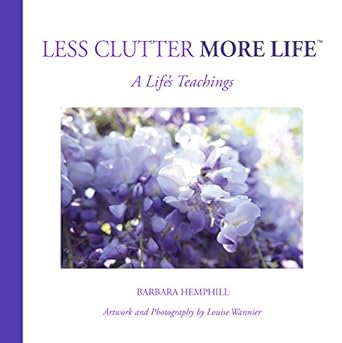
I had three decades of paper, and nobody goes to work and says, “Oh, I’m going to clean out the files today.” In fact, the owner wouldn’t have done it if I hadn’t been there saying, okay, let’s get back to this. At the end of the day, he was just amazed. He said I cannot believe how much we’ve accomplished in one day.
Right. It also is very freeing energetically. You know, there’s a spiritual and emotional uplifting that happens by decluttering and simplifying and getting things organized.
Well, the book I wrote, Less Clutter, More Life, the premise of it is that physical and digital clutter is a symptom of emotional and spiritual clutter. I have seen that over and over. I learned it years ago. I was autographing. Taming the Paper Tiger was the first book I wrote. I wrote it because when I started doing residences in New York in 1979, I quickly learned the number one challenge was paper. We could do the closets and the cupboards in the garage, but the paper was really hard and still is because it’s not the paper; it’s what it represents.
Your hopes, your dreams, your fears, your intentions, your expectations. Dealing with that brings up all kinds of emotions. We don’t want to. Well, I was autographing Taming the Paper Tiger at Barnes and Noble, and I made the comment that I had learned that when someone had trouble letting go of stuff if I asked enough questions, I would always find out that there was a severe emotional loss in their life. This young man, who was probably in his mid-20s, came up to me and said, “My apartment is so full of papers; I have not had anybody in for months, including my family.” He said, I come home from work at night, and I say, “Okay, tonight is the night. I’m going to clean this up.” He said, “I will pick up the pieces of paper.”
He said, “I literally become physically paralyzed.” He said, “The biggest flat surface I have in my studio apartment is my bed.” He said, “I start sorting on the bed.” He said, “There are nights when I literally crawl into bed beside my pieces of paper.” Then he looked at me and said, “My mother died when I was 6 years old. Are you telling me that I have to deal with the grief of losing my mother before I can handle my paper?” I answered him. I said, “Well, I’m not a mental health professional; I can’t answer that. But what I can tell you from my experience is that if you find someone you trust, probably not a family member who can help you decide what you need and want to keep, you will solve your paper problem, and it will impact your other emotions as well.”

Well, I was speaking to a group of executive women at a university, and I told that story. A woman walked up to me, and she said, “You just saved my marriage.” I said, “Wow, that’s pretty dramatic. What do you mean?” She said, “I came here with the intention of going home and telling my husband, to whom I’ve been married for 13 years, that I was leaving” because she said, “He’s a pack rat, keeps everything. I have allergies. I can’t keep the house clean.” She said, “But I never realized until I heard you that it wasn’t that he wouldn’t let go, but that he couldn’t.” Literally, the tears came down her eyes.
She said, “His mother died when he was 7.” She said, “I don’t know what I’m going to do, but I’m willing to go back and give it a try now that I understand that.” I said, “May I make a suggestion?” She said, “Of course.” I said, “If you go back and say something to him to the effect of, I never understood before how important all this is to you. Let’s figure out how you can keep it, and we can still live together.” I stayed in touch with her for probably six to eight months, and there were amazing results. Now, it took 13 years. There was, you know, it wasn’t like it was all gone, but it changed everything.
Because of what happens, God has a sense of humor. In most marriages, there’s a keeper and a thrower away. I’m in one of those, and that’s just the way it works. The more you say to someone else you don’t need that, the more they hang on because they don’t feel heard. When she said to him, “I never understood how important this was,” then it changed the dynamics. He began to say, “Well, we could win collections. Like, Okay, well, we can take a picture of this collection, and then I’ll be willing to let it go.” It was absolutely amazing.
Think of inventorying your items as creating a 'Google search' for your physical things. Share on XEvery time I’m working with a client, I’m listening for the emotion that’s behind it because there’s always some emotion behind it. A lot of people, I call myself Vision Accelerator, which simply means that a lot of people, that’s the legacy you want to leave. We live in a culture where we save our china and crystal and furniture and artwork and whatever for our children and grandchildren, and then it wins it. That brings up an emotional issue about what that says about me. What does that say about my life?
If that isn’t my legacy, then what is? We began to look at what they have done in their life that was important and meaningful, and then we began to look at what’s really important and what could be a real legacy. Stephan, often, it ends up being their story. I’ve helped several people launch writing a book because that is a legacy that will last long after they’re gone.
Yes, absolutely. What’s your take on storage units? That might be a way to get stuff out of the house so it’s not kicking up dust and creating allergies for the other partner. But that doesn’t feel like a long-term solution.
The secret sauce is what we call a finding system, not a filing system.
No, it’s not. It can be a temporary solution, but it is not a long-term solution. If we go back to companies, the amount of money that companies are wasting on storing things in storage units that they never ever look at is astronomical. The decision making is the key. How do you make the decisions? We have some questions we ask people. One of our questions is, does this, whatever this is, this could be a piece of paper, it could be a file, it could be a digital document, it could be a notebook, it could be a piece of furniture, a piece of equipment. Does this help me accomplish my work or enjoy my life? If it doesn’t, by definition, it is clutter. Your ability to accomplish any task or goal is directly related to your ability to find what you need when you need it and when you have a whole lot of stuff that you haven’t been able to find.
In storage units, for example, the majority of people have no idea what theirs is because they don’t remember. If you’re going to use a storage unit, there may be, you know, maybe you have children who are in school right now, and you think someday down the road they might want it. Or maybe you’re a company, and you’re in amid some kind of a reorganization. There are times, but make sure you inventory what goes there so that you know what’s there so you don’t have to go dig through it in order to find what it is that you need. Most storage units are postponed decisions.
Yeah. What does that look like? Is it an inventory index on a spreadsheet, or how do you recommend keeping track of that?
Well, thanks for that question because that’s the key. As I mentioned earlier, the secret sauce is what we call a finding system, not a filing system. It came about because when Taming the Paper Tiger came out, I was approached by a software company. This is in at this point; it was in 92, and the gentleman who owned it said, I’ve read all the organizing books. Yours is the best, and we can turn it into software. I had no clue what he meant. I don’t have a clue, but I’m always up for an adventure. 48 hours later, he drove or flew from Atlanta.
You can’t manage your money if you don’t have a chart of accounts.
I was in Raleigh. We sat down for four hours. In my book Taming the Paper Tiger, I wrote about how I used a file index with my clients. I said a file index is to a filing system. What of a chart of accounts to accounting? You can’t manage your money if you don’t have a chart of accounts. Well, that’s what happens with a file because the same information can be filed under automobile, car, Chrysler transportation, or vehicle. If two people are using the same file, there’s no way you’re going to use the same words.
We don’t even remember what we called it. We called it this one time, and then three weeks later, we forgot that that’s what we called it. Automobiles are in the top drawer, and vehicles are in the bottom drawer. We end up making a new system. We created this finding system where you could index your file. You kept the paper files, but instead of putting names in the file folder, you simply put a number, and that was a warehouse. You literally created a warehouse for paper. Then you would go to your computer. We then had Taming the Paper Tiger software, which still exists.
I’m no longer part of that company. You use other things now, but you can use the computer then to index your papers. You’re creating a Google search for your physical things, and that’s what you would do to the warehouse. For example, years ago, I had a client who was a foundry in West Virginia with 12 employees. They were going to put in an inventory system, and it was going to be $25,000. He said, “I can’t invest that much.” Well, at that point, I had my software, I went in, I spent two days, I installed the inventory for them, trained other employees for $10,000, and they used it for 10 years. The key is simplicity. People often try to do things so much more complex than they need to be.

Yeah, I love simplicity. I struggle with maintaining structure in my digital filing and all that. Just like I’ll have tons of tabs open on my browser, I have tons of files on my desktop. I know that means I’m creative and go into my to-do list. 6,000 items in there. and I am. I’m very creative. But it also occupies space in my head. It doesn’t feel good.
Yeah, well, that’s in our digital transformation boot camp. That’s one of the things. The thing about these boot camps is people are actually organizing while we’re there. It isn’t taking a class. It’s like, “Oh, now I know what to do. I have to go do it.” They actually are in the class doing it with other people. One of the side effects that we found is there’s a lot of shame involved with disorganization and clutter because people think, you know, I’m smart, I’m creative.
Why do I have such a mess? Interestingly enough, if you Google Clutter’s postponed decisions, you will see me quoted often, but unfortunately, it’s off. They often add an adverb, and it will say clutter is only postponed decisions or merely postponed decisions, or simply postponed decisions. Well, if you’re having trouble making decisions about where to keep something or what to call it or how to find it, and then you hear somebody say, “Oh, it’s just postponed decisions, how does that make you feel?” It’s like, “Oh, man.” There’s more shame piled onto that. It’s like, “I should be able to do this myself. I’m a smart person. Why am I struggling so much with this?” Our goal is to teach people how to make decisions, and it doesn’t have a right. Hemphill’s principle is you can keep everything you want if you can find it.
The key is simplicity. People often try to do things so much more complex than they need to be.
We say the cost factor: you can keep everything you want if you’re willing to pay the price, which is time, space, money, and, to your point, energy. If you’re looking at that computer screen and there are 50,000 things open, then that’s draining your energy. It’s about simplicity. In our boot camps, we’re making things very simple. I’ll give you one example. There’s literally paper, and we often encourage people to start with paper first because the principles you learn with paper apply everywhere else. But because the paper is tactile, you’re also learning kinesthetically. So it increases the way you learn.
With a piece of paper, there are only three files: ACT or toss. File means, eh, I don’t know if I’ll ever need it, but I don’t have the guts to throw it away. I’m going to put it in my finding system, which means if I ever need it, I’ll be able to find it. ACT means the ball is in my court. Then the question becomes, what is the next action? Part of the reason that people get so overwhelmed is they look at a piece of paper, and it’s like, “Well, I need to do this and this and this and this.” They can’t figure out what to do, so they pick it up and put it from the left side of the desk into the right side of the desk. But if they ask the question, what’s the next action and when, then we help them implement a system so that they don’t have to touch that piece of paper until they’re ready to do it again. You have the file, you have acted, or you have tossed.
For a toss, we have the art of waste basketry. What’s the worst possible thing that would happen if I threw this away or deleted it? If I threw this away or deleted it, what could potentially happen? Then you say, is that a price I’m willing to pay? It’s not a moral issue. Thirty years ago, I had a PR firm in Atlanta that had 35,000 reference files, two full-time employees, and a room with those file cabinets that you rolled from side to side. Was it necessary? No, but it was necessary for the owner because the owner had huge emotional issues about letting go of things, missing out on opportunities and taking care of other people. In fact, this is where I joke.
If you’re always comfortable, you’re never going to grow. If you want to deal with the clutter in your life, you need to be willing to go through the emotion and the discomfort to get on the other side.
I came up with the idea of the word archives. To my clients, I say it should be spelled our O U R hives because, in the case of this PR company, what was happening was they were saving their client’s stuff for years. Then a past client would call and say, oh, you know, 10 years ago, you did such and such for us. Before we put our finding system in, the poor employees would be digging through this conference room with these boxes, trying to find this file, which was a complete waste of time.
We did two things. One way we implemented this was that at the end of 90 days, they would send something to the client and say, “We have such and such of yours. It’ll be destroyed if we don’t hear from you within 30 days.” Well, that actually increased the number of clients they had because it raised people’s, “Oh, we’re working on this project, and I bet this company could help me.” The employees didn’t have to go back digging through the things, but we did spend a long time filing a lot of that because they weren’t willing to take the emotional risk of letting it go. You have to go through the emotion. That’s the thing. You will get through it, but it feels uncomfortable.
If you’re always comfortable, you’re never going to grow. If you want to deal with the clutter in your life, you need to be willing to go through the emotion and the discomfort to get on the other side. I’ve never had anybody come back and say, “I’m sorry I did this.” Never. Now, I always tell people as we do this, I go into companies, I say, “Okay, I guarantee you that you’re going to get rid of something that a week from now, a decade from now,” you’ll say, “Oh, I wish I had such and such.” But you have to remember the price that you were paying to keep it. If you ask yourself what we call the art of wastebasket, the question is, what’s the worst thing that would happen? Then you say, “Is that a price I’m willing to pay?” It’s not a moral issue. Two people can answer the same thing.
Employees, right? Two employees could say the worst thing that would happen. If I threw it away and my boss wanted it, he’d yell at me. One would say, “Eh, he’ll get over it, throw it away.” The other one would say, “I don’t want him to keep it.” That isn’t right or wrong. That’s different. That’s the art. It’s. That’s. What will you do?
When we keep stuff because of the past, it’s preventing us from being all that God intended us to be.
Yeah, this is good stuff. One bit of wisdom I learned from Kabbalah is that all loss is an illusion. If we are attached to an object, some sort of, I don’t know, heirloom or piece of paper or file, whatever, then we end up tossing it or donating it or whatever. That idea of loss is an illusion. The only thing that’s real here is love. If you can really get behind that, then you don’t have the emotional pull to keep all this stuff. I’ve really gone through quite a transformation.
Part of my spiritual awakening has helped me to let go of some of the attachment to these physical items because I know that they are not real. Like none of this physicality is, it is just part of the video game that we’re playing called Life. If I wanted to reminisce over some nostalgic event or item or something, I could transport myself to that point in this video game later on once I’m back in the heavens. But probably I wouldn’t need to because, you know, I moved on.
I love that. All losses. That’s so true, for that is truth with a capital T. When we keep all this stuff because of the past, it’s preventing us from being all that God intended us to be. I believe that all of us were created for very specific, very unique things that only we can do. There is literally no one else created to do exactly what we were created to do. Our legacy is doing that.
By hanging on to the clutter of the past, we are holding ourselves back, and we’re denying the world the blessing that we would give them by enabling them. Our Productive Environment Institute says, “Accomplish your work and enjoy your life,” and then enable others to do the same. Because when you’re accomplishing your work and enjoying your life, you are enabling other people. You’re being a role model to people. You’re helping people who desperately need your help. One of the values of our company is together we are better in our society. Often it’s like, “Oh, I’m strong. I need to do this myself. I shouldn’t ask for help.”
You use the example of having your assistant go through your email. If you’re going through your email, first of all, you’re depriving somebody else of employment because there’s somebody else who would love to have that as a job. You’re depriving your clients, your friends, and all the people of being all that you can be because you’re bogged down in all of that email. Email is the biggest productivity drain ever. Do you know what’s interesting about it, Stephan? Why did that happen? We talked earlier about how we’ve never been taught to be organized. Well, email is a good example of that. When email was introduced to companies, hundreds of thousands of dollars were spent on installing the software on the platform but virtually none on how to use it.
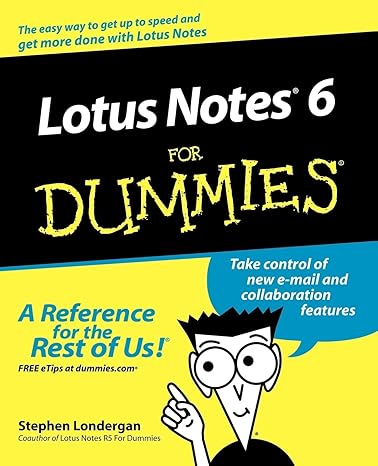
I remember one of the biggest contracts I ever had was with an international company. It was called Taming the Email Tiger. At that point, they used Lotus Notes, and I couldn’t even use it because that was a proprietary program that I didn’t have access to. I couldn’t even use it. So, I needed to go in and teach. These were sales reps. I was going to the sales TR people all around the country. I went to Barnes and Noble, and I bought Lotus Notes® for Dummies.
I built it because 80% of what I presented had nothing to do with the software itself. It had to do with the decision-making; it had to do with putting systems in place. Then, I could find out the little bit that I needed to know from Lotus Notes® for Dummies. It was the most popular thing I’ve ever done. It was all men, mostly middle-aged men, who had never been taught anything like this. They loved it. They didn’t know the simplest things. They didn’t know that you could set up a rule so that an email that they got from somebody who was annoying as hell could be put automatically into a folder so they didn’t have to look at it.
But if that person wanted to talk to them, they could pull it up like, “Oh, I didn’t know you could do that.” Just things like that that they really loved. One of our other principles is that half of any job is using the right tool. My daddy on the farm used to say that half of any job requires having the right tool. I changed that. No, it’s not having it, it’s using it. A lot of people’s email addresses are good examples. The help tab in your email is one of the best tools because there are answers to problems that you can solve that people just don’t even know are there and have never thought to look at.
An analogy that comes to mind when you’re talking about holding onto clutter and deferred decision-making and how this is an energy drain and a block is this analogy of Tarzan swinging from vine to vine, and if he doesn’t let go of the one vine, he can’t grab onto the next One. You can’t move forward.
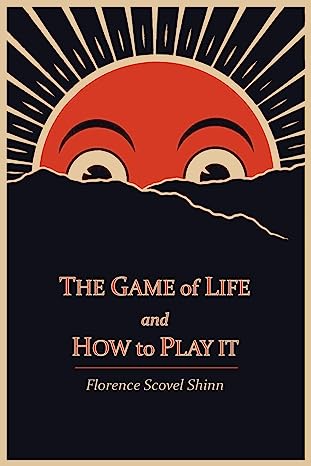
It’s so true. That’s a great analogy. I’ll have to use that one because that’s very visual. It’s so true.
That also has to do with this idea of postponing your prosperity by holding onto the clutter. By holding on and not decluttering and not just letting go, you have deferred your prosperity from coming.
Oh, I love that. I just wrote that down. Postponing your prosperity. Boy, that sounds like a blog talking. But there.
Everyone could be a book.
It would absolutely.
Yeah. Postponed Prosperity by Barbara Hemphill. I like it.
I love that. That’s exactly what happens.
Yeah. Another thing, too kind of a corollary to that, is a lot of folks, me included, have fomo. Fear of missing out. And I recently learned from watching a video on YouTube with Bashar who is channeled by Darryl Anka. I’s kind of like how Abraham is channeled by Esther Hicks while Bashar is channeled by Darryl Anka. Pretty woo-woo, I know, but really amazing wisdom is being channeled through Darryl. And this idea of FOMO actually creating the missing out was really profound for me. So FOMO is fear of missing out.
I read somewhere else. The Game of Life and How to Play It by Florence Scovel Shinn. It’s a 100-year-old book. Amazing book. She defines fear as inverse faith. It’s faith that the other shoe will drop. It’s faith that everything Murphy’s Law is going to happen. FOMO is fear that inverse faith that you’re going to miss out. Of course, you’ve manifested that reality. You’ve created the missing out. Missing out does not happen normally because everything is divinely orchestrated and perfect and designed for your highest and best good. Except if you’ve got fomo, then the universe is going to. You’ve ordered up from the universe some missing out so that you can have a fear of it.
I’m so glad you brought that up because that is also the reason that people save so much more than they need to save. Reference files are a good example. The reason that that client had 35,000 reference files was because it was a fear of missing out on someone. Another really big one is the fear of offending someone. This was given to me. For example, when I autograph books now, I no longer autograph them to an individual unless I’m asked to because one of the biggest challenges in entrepreneurs’ offices is their library. One of the things I learned was that if the books were autographed with their name, they were reluctant to let go of them because it felt disrespectful.
It’s like this was written to me. It has my name on it, and if I let go of it, I’m being disrespectful. Now, when I autograph books, I write blessings, Barbara Hemphill. Then I told them that what would happen then was that it would become clutter for the client. The client really didn’t want it anymore, but they didn’t know what to do with it. As an author, the book got stuck there. However, if I just autograph it generically, then they can pass it on to somebody else, and someone else will be blessed by the information that they read.
Yeah, I like that. I just have been going through a bunch of old books, boxes and boxes of old books that I pulled out from the storage unit. We’re trying to clear out the storage unit. One of the books that was hard for me to get rid of, but I did end up putting it in the donate pile, is this tiny little book. It’s got a little author inscription on the front, to Stephan Spencer or whatever. Thank you for everything. Jimmy Carter. It was his Nobel Peace Prize acceptance speech. I did a lot of SEO and other things for the Carter Center years ago. That was a little thank you I got. I just put it in the donate pile because I don’t need that. It doesn’t. Spark joy is the term Marie Kondo uses. You know, I think highly of Jimmy Carter, and I don’t need the book.
That’s exactly right. It’s so true. People really, really struggle with that. Letting go of things that might offend somebody or be important or something. But then it’s holding you back. It is postponing your prosperity. It’s postponing your peace. For example, I remember years ago, I had a client where all of her children had left home and left behind all their stuff, right? This was back when I was doing residences. We went in, we told all the children, you have 90 days to get anything out of here you want, whatever you don’t want in 90 days if you haven’t taken it, then we’re going to do with it whenever we want. We did.
A productive environment is one where you can find what you need when you need it and regain order quickly after a mess. Share on XOne child was overseas; we put his name there, saying that he was going to come back, but we did the rest of them. She called me, I don’t know, about six weeks later, and she said, “This is going to sound really crazy, but since we organized that attic, I sleep better at night.” Well, it didn’t sound because the attic was literally over the master bedroom. If you look at feng shui technology, it’s literally like philosophy that was hanging over her head. I’ve had that happen. Just this week, I actually talked with a client who was really struggling with some stuff, and we found out that her house had furniture that she had bought with her first husband.
That was a very unhappy marriage. She never made the connection, which I never understood. Where it came about was sometimes we have people take a picture of stuff. When you look at your own stuff, it’s hard to see it, but if you take a picture of it and then you look at the picture, it’s kind of like you’re looking at it with different eyes. She had these bookshelves that had been custom-made with her husband 35 years ago, full of the bookshelves themselves and full of books that she really didn’t care about. It came up because, in the garage, she had a drafting table.
I said, “Well, does she want to use it for artwork?” I asked if there was a room in the house. She said, “Well, there would be if I took the bookshelves out.” Then that was when she told me the history of the bookshelves. I said, “Here’s what’s causing the clutter. That’s the emotion that’s causing the clutter.” Her face literally just lit up. She’s, “Oh, I’m so excited. I never made that connection before.” Her next assignment was to literally walk through the house and look at all the things that were there that were related to that previous marriage, which was full of unhappiness.
Wow. You made a difference in her life there. You mentioned feng shui. Do you know who Marie Diamond is?
Yes, I do.
I heard her talk about feng shui and how it relates to abundance and prosperity. There’s a success corner, and it’s different for each person. There’s a relationship corner and so forth. You figure out where those corners are, and if you’re facing your desk in the wrong direction, that’s holding back your prosperity. It was really fascinating. She spoke at a Mindvalley summit, and Vishen Lakhiani, the founder of Mindvalley, said that he actually tried implementing those things that Marie recommended. That included turning his desk and making a shift in direction for his desk. It made a huge difference. The sales really increased right after that. A whole bunch of things happened to him that made it very clear that this was not just hocus pocus.
Oh, it’s absolutely true. I have used feng shui consultants myself. It’s one of those things that I found you have to be very careful with. Because it’s one of those things that there are some foundational truths that I think fit with virtually any philosophy, but then some of them get into some things that I just don’t buy. It’s just stuff that doesn’t fit in with my philosophy of life. You have to be very discerning. But, when we’re helping people organize their office, one of the first things we look at is where their chair is sitting. When they’re sitting at their desk, it’s got to be the power position.
If it isn’t, then there are some ways that you can work around it. But it definitely has to do with the way I think of describing it. It has to do with the way that light and air flows. When things are not arranged properly, they end up being cluttered because it’s not doing what they need to do. We always take that into consideration. I mentioned that we had a year-long program called Soar, which is Systemize, Organize, Activate, and Relate. That has to do with relationships. Well, that’s when we begin to look at, “Okay, is your office organized the right way?” I actually had a Feng shui consultant.
I used to have an office upstairs, and I had several employees here. It was really a big office with fancy furniture and everything. She said, “How are you? What do you think about your office?” I said, “Well, it works.” She looked at me, and she said, “That’s the problem.” I said, “What do you mean?” She said, “You’re working too hard.” She said, “I feel like you should flip offices.” We did. I flipped downstairs to a smaller office, and I did something I’d never done before.
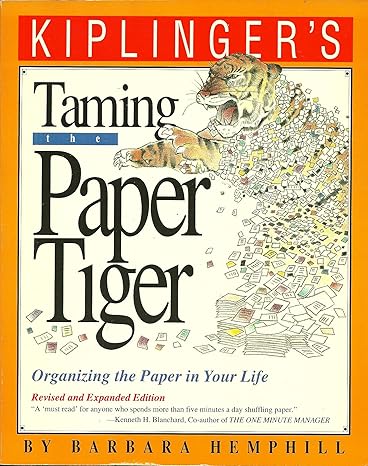
I’d always organized my office based on function, and this time, I did it on aesthetics. It was partly because I was in a different stage in my life. I think that’s one of the things that’s really important. Also, being organized is different depending on where you are in life. We have four questions that we use to say whether Something’s organized, it’s. “Does it work? Do you like it? Does it work for the people it impacts? Can you recover quickly? Can you recover quickly?” Means, yeah, messes happen, but I know what to do with it. It’s when a mess happens, and you know what to do with it. That’s a problem. But if you know what to do with it.
But then, six months later, you ask, “Does it still work? Do I still like it? Does it still work for the people it impacts? Can I still recover quickly?” If the answer is no, it doesn’t mean you were wrong six months ago. It means things have changed. Changed. I still take a few clients, but not very many. People say, well, you know, why would you still do clients? I said because things change so quickly. It’s important that I take some clients so that I know that everything we’re teaching still works and that we’re able to adapt. We’ve constantly adapted. The foundations have been the same.
In fact, I found that I was clearing out some of my memorabilia, and I found an audio cassette of a speech I gave to Bloomingdale in New York City in 1988. I listened to it. It was so funny. First of all, I talked at a record pace. It was like, okay, I’ve only got an hour. I’ve got to tell them everything I know. That was really funny. But it was still clutterous, postponed decisions. It was still, and there were only three pieces of paper. I have to joke because I will say to my husband, oh, I’m giving a speech for such and such. He says, what’s your topic? I said, we’ve been married for 37 years, and I’m still talking about the same thing. It hasn’t changed.
Yep. Well, there are a lot of people that you still have to help.
We’re a society. As a culture, we have a clutter crisis. The storage unit that you brought up is a good example of that. I was signing books at a bookstore in Chapel Hill one day, and there were four women sitting in the front row. They were all living in 4,000-plus square foot houses by themselves, and they wanted to move. But what was preventing them was what I did with all the stuff. In this case, it was their children, and grandchildren didn’t want it. It’s like, what am I going to do with that stuff? They’re miserable, really. They didn’t have relationships with people.
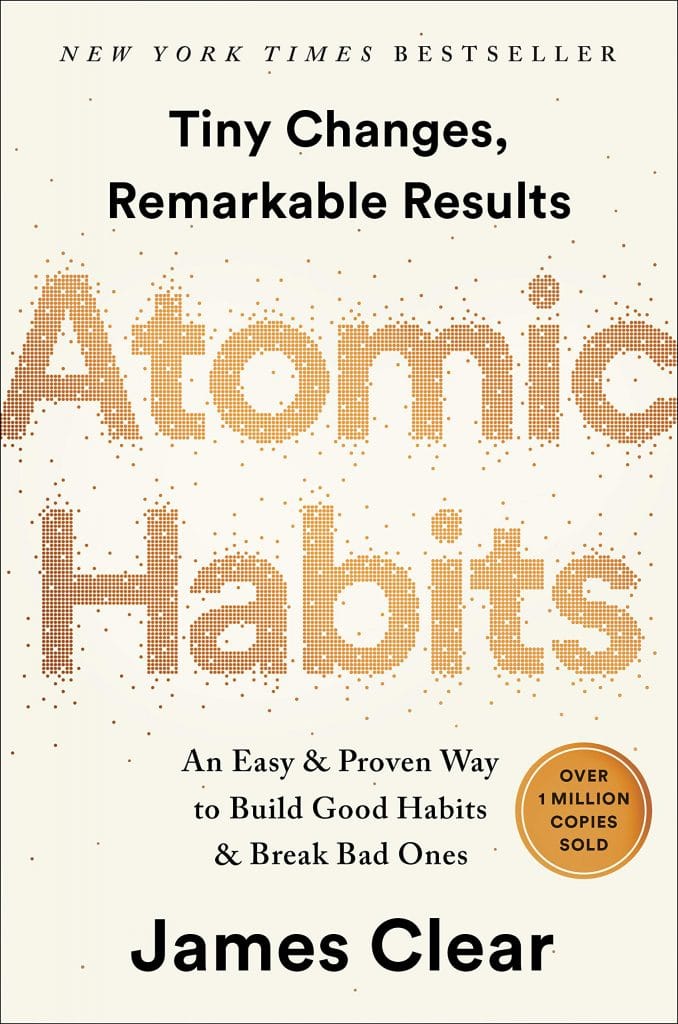
They were stuck in their stuff. Unfortunately, there are thousands of people in that position, and there are many entrepreneurs who could be making so much more money if they put systems in place that they could delegate. A lot of people are not organized enough to be able to delegate. I love James Clear. In Atomic Habits, you don’t rise to the level of your goals, and you fall to the level of your systems. And so we are all about helping clients put in systems that they will do or that they can delegate.
Yeah. You have a scorecard to help people see where they’re at in terms of what they need to focus on and where their weak points are. What’s that scorecard?
Well, it’s always fun. You know, we all like to measure ourselves. That’s why when you’re at the checkout stand at the grocery store, there are always quizzes. It’s a scorecard.productiveenvironment.com. When you go there, you’ll fill it out. It might take you five minutes, not long. It’s 15 questions that talk about how you work, how you manage your email, and just different things like that. We’ve looked at thousands of those, so when we look at them, we can very quickly tell how you need to get started. When you fill it out, you will get a total office transformation blueprint, which is actually a picture of how you organize your office. Then, you’ll have the opportunity to have a 30-minute consultation with one of our Certified Productive Environment specialists to customize it for you.
A lot of people end up doing a lot of things that are really a waste of time. For example, they’re dealing with the old stuff instead of putting a system in place first. If they put a system in place first, then they’ll get a lot more. You get that consultation to point you in the right direction. We’re also always looking for people who are interested in a career change and want to become certified productive environment specialists. We have a website, becomeaspecialist.com, where you can go and listen to that webinar. It talks about how it works, and it’s a great way for entrepreneurs to get a new source of income. Sometimes, there are people who already have a coaching program, and they can add this to it.
Yeah, add another or somebody who wants.
To be an entrepreneur who doesn’t know how.
Awesome. If we could leave our listener or viewer with one last wisdom nugget, something that you haven’t already shared, what would it be?
One of the questions that I encourage everyone to ask, and I asked myself that question periodically, was if you left this earth tonight, what regrets would you have? The answer to that question is a form of clutter. Then, it is time to do something about that. You mentioned taking non-violent communication. I took that, I answered that question, and my answer was there was one of my adopted children that I didn’t have a very good relationship with, and I realized that would be my regret. I was saying, oh, but I can’t do anything about it because I reached out, and she hasn’t reached back.
When I took that course, it was like, “Oh yes, I can.” I made an intention that was in January a year ago January. I made an intention that if we had not connected by Mother’s Day, I would get on an airplane and fly and show up on her doorstep. Well, I didn’t have to. A few months later, we began to text, and then she came to visit me. Do not underestimate the difference that you can make in your life. When you ask that question, what regret would I have if I left the search tonight? Then, it’s time to do something about it. I’m the connector. Often, when people come to me to answer that, I’m not doing the work, but I’m connecting them with the person who can help them solve that problem.
That’s awesome. Thank you so much, Barbara. What a pleasure and really inspiring. You’re doing such good in the world. Thank you for everything that you do and the light that you reveal. Listener, you, too, are a light in the world. Get out there and make a difference. We’ll catch you in the next episode. I’m your host. In the meantime, have a great week. Stephan Spencer signing off.


